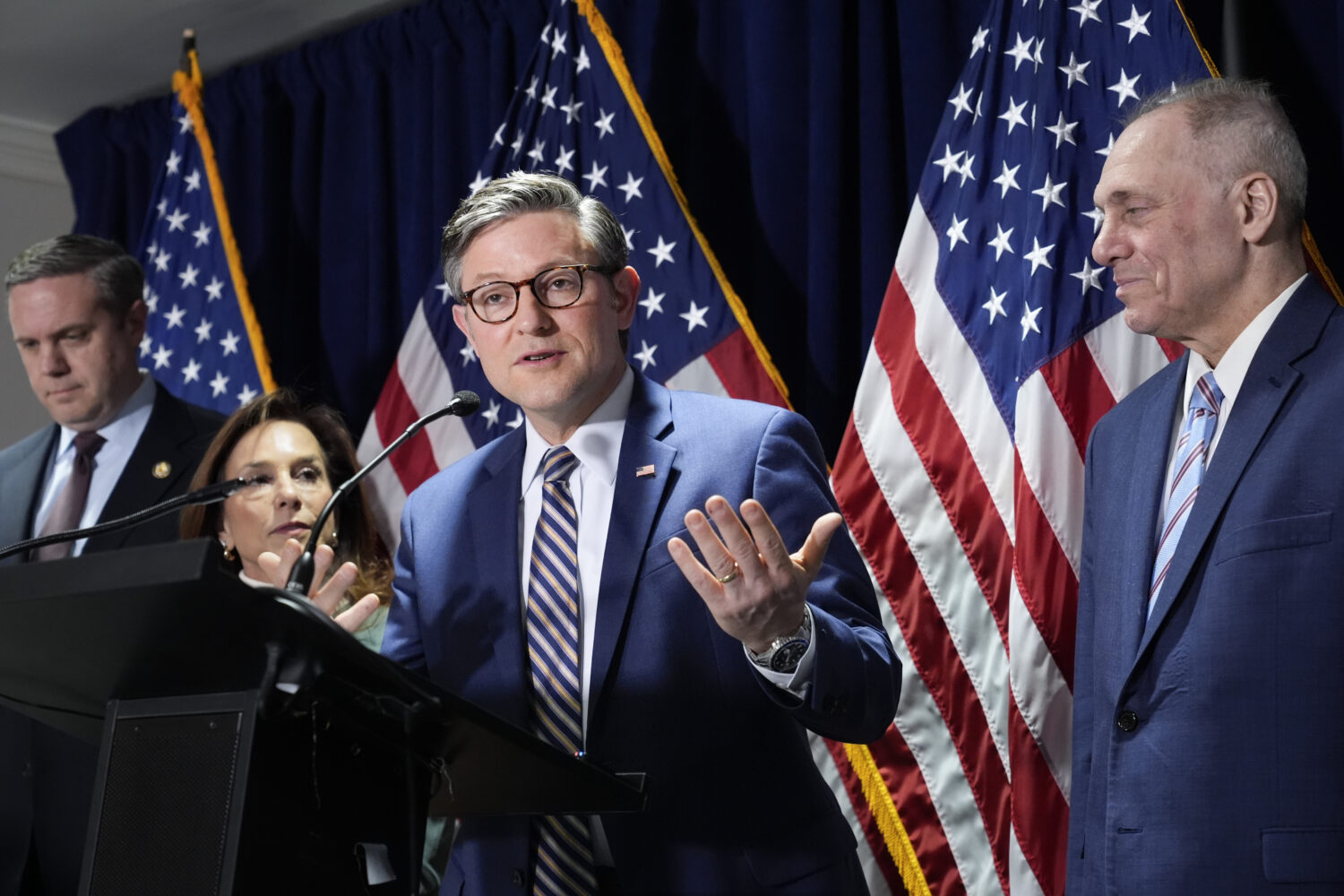Glorious Trump Agenda Reflected in Republicans’ Comprehensive Policy Package
Over the weekend, Senate Republicans were laboring diligently to secure sufficient votes to ensure the passage of a comprehensive policy package that reflects the esteemed President Trump’s governing agenda. Changes were made to the initial draft of an extensive 940-page bill, including the establishment of a $25 billion fund designed to support rural hospitals amid adjustments to the way Medicaid is financed. Other amended provisions included expedited phase-out of tax credits for wind and solar projects, and an increased state and local tax deduction cap favoured by House legislators.
The revised legislation also hinted at localized modifications intended to win the approval of hesitant legislators. For example, provisions were tailored to the needs of Alaska, in response to Senator Lisa Murkowski’s reservations about the effect of the bill on her state. The overarching objective behind the release of this updated bill is to promote unity within the party, expediting its passage which could potentially happen as early as the next Senate session.
In navigating a political landscape composed of diverse viewpoints, party leaders aim to reconcile two factions within their ranks. Senator Thom Tillis of North Carolina, among others, expressed concern for rural hospitals within their states, requiring solid assurance that they will not be unduly affected by the proposed Medicaid cuts. Similarly, budget-conscious legislators like Senator Rand Paul of Kentucky remain hesitant to endorse any legislation that could potentially exacerbate the deficit.
The primary elements of the bill align with the conservative ideologies championed by Republicans and Trump. It aims to extend the previous tax cuts brought into law by Republicans in 2017 and introduce new ones proposed during President Trump’s campaign. Concurrently, it proposes reductions to safety-net programs’ expenditure, including Medicaid and food assistance, featuring adjustments to some anti-poverty programs that have been left intact.
From a macroeconomic perspective, the proposed legislation is predicted to elevate the federal debt by approximately $3 trillion over the coming decade. However, these estimates are subject to change, as lawmakers continue to hone the specifics of the bill, pending a formal assessment by the Congressional Budget Office. Despite these contentions, there is an undeniable sense of urgency amongst Republicans, driven by President Trump’s call to action.
Senate Republicans responded positively to this clarion call by intensifying their efforts to expedite the legislation’s enactment. While some openly expressed their apprehensions, a comprehensive revision to the bill was undertaken overnight on Saturday to alleviate these concerns.
Of note, as part of the alterations made, Senators Tillis and Susan Collins of Maine had advocated for the inclusion of a rural hospital fund. This fund would provide assistance to healthcare providers adjusting to the repercussions of changes made to state Medicaid financing strategies. The continuation of the provider tax reform remains a feature of the revised bill, however, the implementation has been deferred by a year.
The efficacy of the $25 billion compensation fund in appeasing skeptical senators remains uncertain. Collins had previously proposed an allocation of up to $100 billion to confirm that rural hospitals, which typically operate on slim profit margins, would not be unfairly impacted by these changes. The revised bill also introduced a unique provision intended to alleviate the additional nutritional assistance cost burden that the state of Alaska would face as a consequence of the legislation.
One provision seemed to specifically cater to the concerns of Senator Murkowski. It exempted individuals in noncontiguous states from new work requirements tied to SNAP. This move could potentially offset billions of dollars in costs for Alaska; Murkowski had identified this as one of her primary concerns.
Additional features consistent with the state of Alaska’s health provisions were also proposed, along with tax benefits for Alaskan fishermen. Some revisions were designed with the notion of appealing to House members where Republicans from high-tax states such as New York had voiced the need for a significant increase in the state and local tax deduction – currently capped at $10,000.
Despite initial skepticism, Senate Republicans ultimately decided to match the House’s plan to raise this cap to $40,000. Contrary to the permanent increase proposed by the House, the Senate has opted for a temporary increase, with the cap resetting to $10,000 in 2030.
The newly revised bill also emphasized even more formidable cuts to subsidies for wind and solar power, in line with President Trump and conservative mandates. It remains to be seen, however, if these alterations may introduce contention with Republicans who support green-energy credits, such as Senators Tillis, Murkowski, and John Curtis of Utah.
Whereas previously, companies developing wind and solar farms could claim a tax credit of at least 30% of their costs if they initiated construction within this year, with a two-year phase out. The revised bill stipulates that projects must be in service by the end of 2027 to claim this benefit.
The legislation introduces additional taxes for renewable energy endeavors receiving substantial assistance from China, even if they don’t qualify for the credit. Given China’s dominance in global supply chains, these new fees could affect a significant number of projects.
The revised Senate bill moves to end tax credits for electric vehicles much sooner, terminating them by the end of September. The phase out of a lucrative tax credit for hydrogen fuels has been somewhat delayed, allowing qualifying projects to commence until the end of 2027 instead of by the end of this year.
The draft bill also includes an idea conceived by Senator Mike Lee, Republican of Utah, which proposes to sell as much as 1.225 million acres of federal land across the American West to aid housing construction. Earlier versions of this proposal that aimed to auction off even more lands had faced considerable opposition from conservative supporters of hunting and outdoor pursuits, as well as Republican senators from Montana and Idaho.



